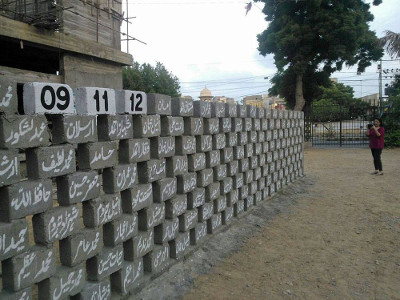Solidarity with survivors and a call on brands: 13 years Ali Enterprises fire
Today marks 13 years since the deadly Ali Enterprises fire in a Pakistani garment factory. Over 250 workers died in a factory that was certified as safe by social auditors mere weeks before. On this day, we remember the tragedy of their deaths and the plight of their families. We commit to continue our struggle for safer factories in Pakistan and around the world, as well as for decent working conditions for garment workers globally.
The Ali Enterprises fire showed the disregard in the global garment industry for workers’ lives as well as the deadly consequences of the reliance on a social auditing industry that serves the interests of brands and suppliers. It took five years of campaigning for families to receive compensation in the form of life-long pensions covering loss of income. It took over ten years to bring the tried and tested binding safety agreement, The International Accord for Health and Safety in the Textile and Garment Industry, to Pakistan. And despite over a decade of criticism, the social auditing industry still dominates supply chain management of most brands.
“Thirteen years after the Baldia factory tragedy, the absence of safe working conditions—particularly in textile and garment factories—proves that brands and their local suppliers value profits over workers’ lives,” said Nasir Mansoor, secretary general of the National Trade Union Federation in Pakistan (NTUF).
“Just two days before the anniversary of the tragedy, fires broke out in two factories in Karachi, the country’s largest industrial city, causing the buildings to collapse. Fortunately, no workers were inside at the time. Such incidents demand concrete measures to make workplaces truly safe. Yet governments are moving in the opposite direction, with a disappointing example being the recent amendments to the Due Diligence Legislation in Germany,” he added.
The Accord, which started work in Pakistan in 2023, has recognised the hazards of the Pakistani garment and textile industry for what they are and inspected and ordered remediation of hundreds of factories already. As the country programme is up for renegotiation this year, it is important to ensure that the hazards of the climate crisis, which threatens workers’ health and lives by causing heat stress and flooding, is recognised in the new programme and actively inspected for. Pakistan faces dangerous heat waves and flooding due to climate driven crisis and the workers are the most affected. Additionally, it is of utmost importance that all covered fabric mills are listed and inspected without delay.
“It is imperative to strengthen mechanisms like the Pakistan Accord to ensure workplace safety and to pave the way for legislation at both national and international levels,” said Mansoor (NTUF).
It is unfathomable, that so many years since this deadly fire and the Bangladeshi mass casualties that followed in 2013 showed the consequences of negligence towards safety in supply chains, there are still brands that claim their own social auditing reliant processes are enough to keep workers safe. Brands that have garment or textile production in Pakistan and failed to sign the International Accord include Kontoor Brands (Lee, Wrangler), IKEA, Decathlon and Amazon. We call on them to sign the Accord immediately for both Pakistan and Bangladesh.
It is unfathomable, that so many years since this deadly fire and the Bangladeshi mass casualties that followed in 2013 showed the consequences of negligence towards safety in supply chains, there are still brands that claim their own social auditing reliant processes are enough to keep workers safe. Brands that have garment or textile production in Pakistan and failed to sign the International Accord include Kontoor Brands (Lee, Wrangler), IKEA, Decathlon and Amazon. We call on them to sign the Accord immediately for both Pakistan and Bangladesh.
“Thirteen years after the Ali Enterprises fire, we still see brands refusing to take responsibility for workers’ lives and safety. This is unacceptable. Workers deserve safe workplaces, dignified conditions, and justice. We call on all brands sourcing from Pakistan to immediately sign the International Accord and put workers’ safety above profits,” said Khalid Mahmood, Director of the Labour Education Foundation.
Thirteen years on, the 11th of September is a painful day that we do not want to leave unmarked. It’s a day when we reconfirm our solidarity with garment and textile workers in Pakistan and reaffirm our commitment to hold brands to account for the working conditions in their supply chain, in memory of those who died because of their negligence.
